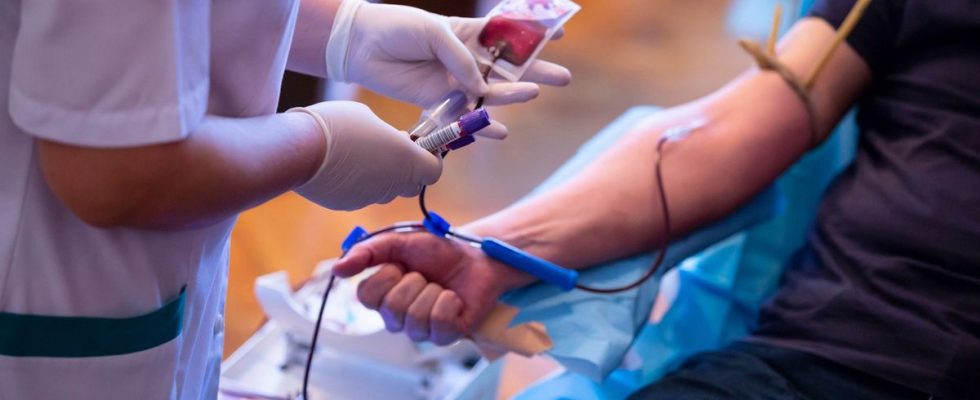Published on
Updated
Reading 2 min.
A treatment against cholesterol makes it possible to reduce the quantity of “eternal pollutants” (PFAS) in the blood by 60% in three months according to a clinical trial carried out in Denmark, a project manager explained on Thursday.
“The effect of the treatment results in a drop (in the level) in the plasma of 63%, which corresponds to approximately a drop of 3% linked to the passage of time and of 60% thanks to the treatment“, Morten Lindhardt, a doctor at Holbaek hospital, west of Copenhagen, told AFP.
In other words, with this treatment – cholestyramine – the blood gets rid of pollutants 20 times faster than without intervention, according to the study published in the scientific journal Environment International.
According to the researchers, this is a promising avenue for people who have been exposed to high doses, because these eternal pollutants, which tend to accumulate in the body, can be harmful to health, for example by reducing the immune response to vaccination, by having an impact on cholesterol or by being linked to cancers or obesity.
“If you continue to be exposed, I don’t think you need to do this treatment all the time because of the side effects.“, which can manifest in the form of a rash or abdominal pain, notes Mr. Lindhart.
However, the drug helps to eradicate the “feeling of being poisoned” that people with high levels of pollutants can feel, he welcomes.
PFAS, or per- and polyfluoroalkyl substances, are a large family of some 4,000 chemical compounds.
In Denmark, residents of Korsør (center) were contaminated with one of them, perfluoroctane sulfonic acid (PFOS) associated with an increased risk of cancer and banned in Europe.
Within this community, the measured levels of PFOS are well above normal (21 ng/mL) and the clinical trial was carried out on 45 residents, with a median level of 191 ng/mL.
Despite the small size of the cohort, the effect of the treatment, because it is very important, is indisputable, assures Mr. Lindhardt.
However, there is no question of treating all the people facing sky-high rates.
“The risk of side effects is far too high; if we treated everyone, it would be a disaster.“, he warns.
He sees “potential” for women of childbearing age, to enable them not to transmit this high level of PFAS to their future child.
“This could break the chain of transmission to the future generation“, said the doctor.
Caution remains in order because if the effects of the drug are documented in blood levels, they are unknown on kidney diseases or immune deficiencies, notes Mr. Lindhardt.
